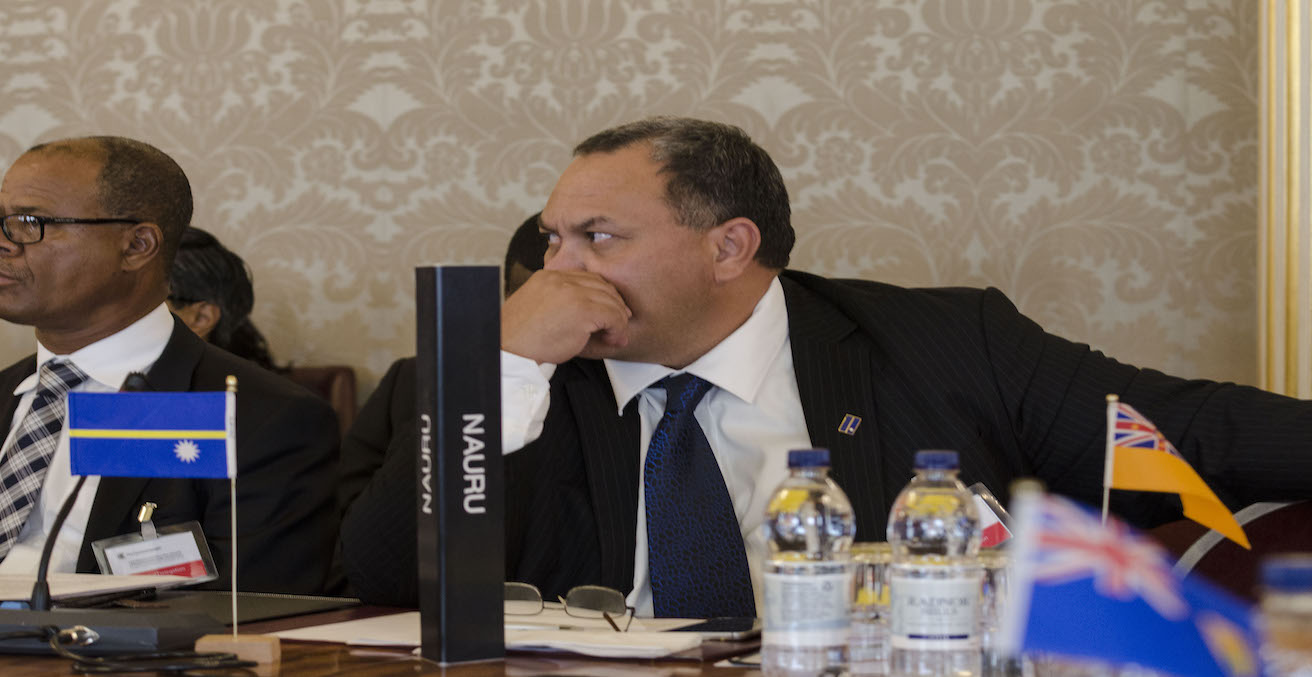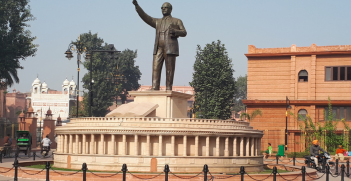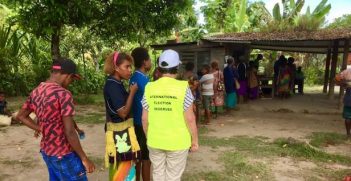Elections in Guatemala and Nauru: Immigration Implications for the US and Australia

Attention should be paid to the recent elections in both Guatemala and Nauru, as they have similar immigration implications for the US and Australia.
At first glance, Guatemala and Nauru don’t have much in common – aside from being the only sovereign states that held national elections this August – nor do they rank highly in terms of global influence. Similarities emerge, however, in the context of immigration debates playing out within nearby larger powers.
Just weeks ago, the US signed an agreement with Guatemala designating the Central American state a “safe third country” for prospective immigrants, which may strike Australians as a similar arrangement to our “Pacific solution” involving Nauru. Several other authors have suggested that the US use of Guatemala, as an overseas processing centre for asylum seekers, was influenced by Australia’s comparable use of Nauru. The recent changes in government for Guatemala and Nauru should prompt the US and Australia, respectively, to consider any impacts on contentious refugee policy.
Guatemala
Background
Article 184 of Guatemala’s constitution limits presidents to a single four-year term, preventing the incumbent Jimmy Morales from standing for re-election. Morales won in 2015 as a conservative outsider on an anti-corruption platform, but has since been embroiled in his own corruption scandals — support for his National Convergence Front party (FCN) nosedived in recent legislative elections.
Trump and Morales share a lot of common ground – for instance, Guatemala became the only country to follow the US in relocating its Israeli embassy to Jerusalem – but Guatemala reportedly only agreed to a “safe third country” agreement with the US under threat of tariffs in July 2019.
This deal requires Guatemala to offer asylum to Central American refugees seeking asylum in the US. For Trump, the agreement aims to halt “migrant caravans” in Guatemala, preventing them from continuing to the US-Mexico border. Although Guatemala’s infamously high homicide rate has decreased in recent years, there are serious concerns over how “safe” the country will truly be for refugees.
Election
On 11 of August, Guatemalans returned to the ballot box, after a first-round vote in June that narrowed the presidential contenders down to two. Sandra Torres, a former first lady who leads the leftist National Unity of Hope (UNE), won 25 percent of the June vote, well ahead of the second-placed conservative and Vamos party founder Alejandro Giammattei.
Torres lost to Morales in the second-round vote back in 2015, while Giammattei has contested every election since 2007. In the lead-up to the 2019 contest, both candidates criticised the incumbent Morales for signing the asylum deal with the US, while they both grappled with their own histories of corruption scandals.
Turnout for the run-off was low as expected, prompting some to label the vote an “unpopularity contest.” Of the 3.48 million Guatemalans who voted — under 43 percent of eligible voters — over 1.9 million chose Giammattei. He will spend the remainder of the year as president-elect, waiting for Morales’ term to expire on January 14th.
Among Giammattei’s earliest comments following his electoral success were vows to renegotiate the US asylum deal, stating: “If we don’t have the capacity to look after our own people, imagine what it will be like for foreigners.” While this move would be in line with public support in Guatemala, it may be complicated by US reluctance to appear conciliatory on volatile immigration issues, and by the limited support for Giammattei’s Vamos in the Guatemalan Congress.
Nauru
Background
With approximately 10,000 residents, comparable to small towns like Kingaroy or Esperance, Nauru doesn’t exhibit a huge level of electoral institutionalisation. As such, political parties play little role in Nauruan politics, with most candidates running as independents for one of nineteen seats in Nauru’s Parliament. Once Nauruans have voted, these parliamentarians vie amongst themselves for the presidency — only MPs can be president.
Australia has a long history with its former colony of Nauru. Following the 2001 Tampa crisis, John Howard reached an agreement with Nauru and PNG to establish an offshore processing centre for refugees seeking asylum in Australia. Hundreds of asylum seekers were resettled when the centre closed in 2008, only for it to reopen in 2012 as immigration debates resumed. By March 2019, there were reportedly zero people being held in immigration detention in Nauru, although for around 300 refugees still living amongst the Nauruan community — physical and mental health is a real concern.
Baron Waqa became President in 2013’s election. He downplayed concerns about the wellbeing of refugees on his island, attributing incidents of refugee self-harm to the encouragement of foreign refugee advocates. He complied with Abbott and Morrison’s hard-line immigration stance, though he joined Pacific leaders in calling on Australia to take greater action on climate change. Waqa also sang the praises – quite literally – of New Zealand’s climate-conscious Jacinda Ardern.
Election
All nineteen seats in the Parliament of Nauru were up for grabs on the 24th of August. The two seats in Waqa’s Boe Constituency were the most interesting to watch: Waqa received only 188 first-preference votes or 23 percent, which was not enough to win back a seat.
As a result, Waqa lost the presidency, leaving newly elected members to vote for his replacement. Justice Minister David Adeang, a Waqa ally, and relative newcomer Lionel Aingimea both put their hands up. Despite only entering parliament in 2016, Aingimea was supported by twelve of his colleagues, compared to Adeang’s six. With Waqa out of parliament, Aingimea became President immediately.
The dynamic nature of Nauruan politics and Aingimea’s low profile, make it difficult to predict whether Nauru’s attitude to its resident refugees will change. Aingimea previously worked for a human rights NGO run by the Pacific Community, and is seen as a member of the younger generation of Nauruan politics. Serving as Nauru’s secretary of justice in 2015, he was forced to defend some controversial positions, such as the arrest of an opposition MP, denying a visa to an Australian lawyer, charging foreign journalists to enter the detention centre and banning Facebook. As President, Aingimea expressed interest in continuing to work alongside Australia in future endeavours, even though he did not mention the refugee issue.
In Australia, Morrison seeks to frame Nauruan immigration detention as a success story, amidst reports earlier this year that all children seeking asylum on Nauru have been resettled elsewhere. Morrison and Peter Dutton still express interest in removing all refugees from the island, but face political pressure due to the self-harm incidents that Waqa previously dismissed.
Just as Aingimea must grapple with his predecessor’s firm support for Australia’s complex third-country immigration arrangement in Nauru, Giammattei will take over the reins of Guatemala at a pivotal time for a similar agreement with the US. If the deal goes ahead, the Nauruan precedent hints at a strong possibility of a medical crisis among dissatisfied Central American refugees, which would prove challenging for Guatemala’s conservative perennial candidate and Trump’s isolationist USA.
Ben Eliasaf is a master of International Relations (Advanced) student, and a tutor for undergraduate foreign policy courses, at the ANU’s Department of International Relations.
This article is published under a Creative Commons Licence and may be republished with attribution.




